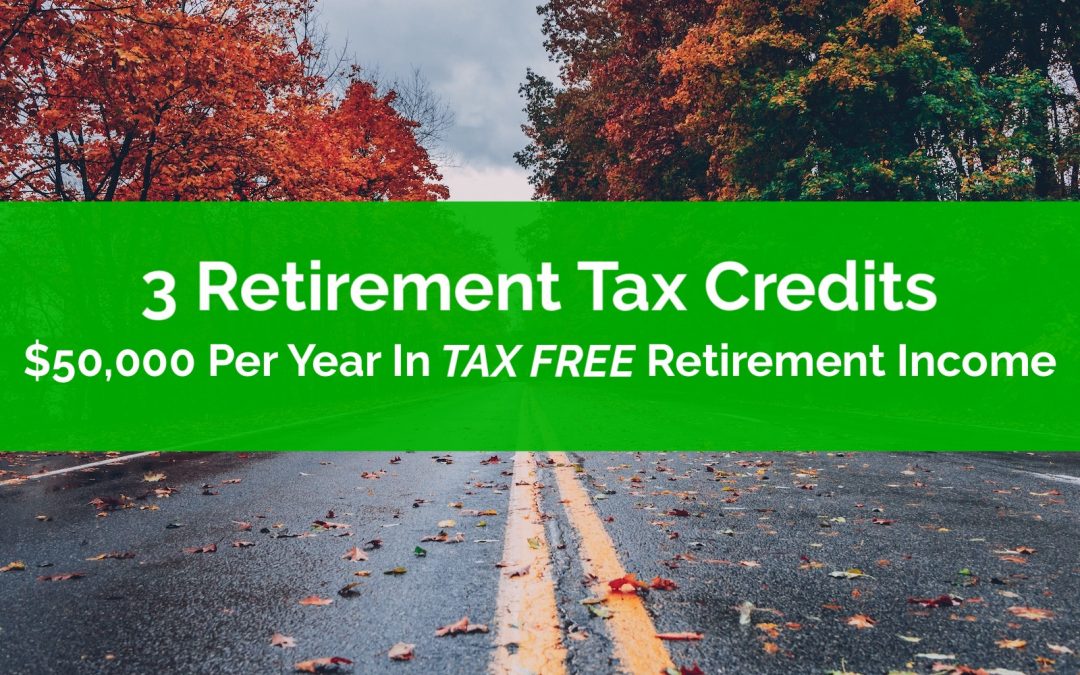
by Owen | Mar 13, 2023 | Financial Goals, Financial Planning, Government Programs, Income, Investment Planning, Retirement Planning, Tax Planning
When we talk about retirement planning with our clients one topic that inevitably comes up is tax planning.
Income tax is often the single largest expense in retirement. Larger than travel, food, or medical expenses.
Income tax often comes up when we talk about retirement planning because many people are worried about paying too much tax in retirement and negatively impacting their retirement spending goals.
Many people do not realize that in retirement there are new tax credits that can help reduce income tax, sometimes to zero. It’s understandable that people aren’t aware of these tax credits because they’re mostly available to those over age 65, so they’re not necessarily on someone’s radar if they’re under age 65.
Paying less tax in retirement is nice, but what if you could pay NO TAX at all in retirement? With some pre-retirement planning that is easily possible.
There are three important tax credits that can help you earn over $25,000 per year as an individual, or over $50,000 per year as a couple, and pay zero tax in retirement.
In this blog post we’re going to look at three important tax credits in retirement, two of which, for most people, are only available after age 65. We’re also going to work backward to craft a retirement plan that provides $75,000 per year in spending with zero tax.

by Owen | Mar 6, 2023 | Financial Planning, Government Programs, Retirement Planning, Tax Planning
One of the amazing things about financial planning and retirement planning is how much the details matter. One detail in particular is very important and that is the province you live in.
It’s not even about the difference in cost of living, or the difference in average salary. Even with every factor being equal, just the difference in tax rates and provincial benefits are enough to impact your financial plan over time.
We’ve worked with clients who are nearly identical in every detail except for the province they live in. One client is very successful, while the other will run out of money in the future.
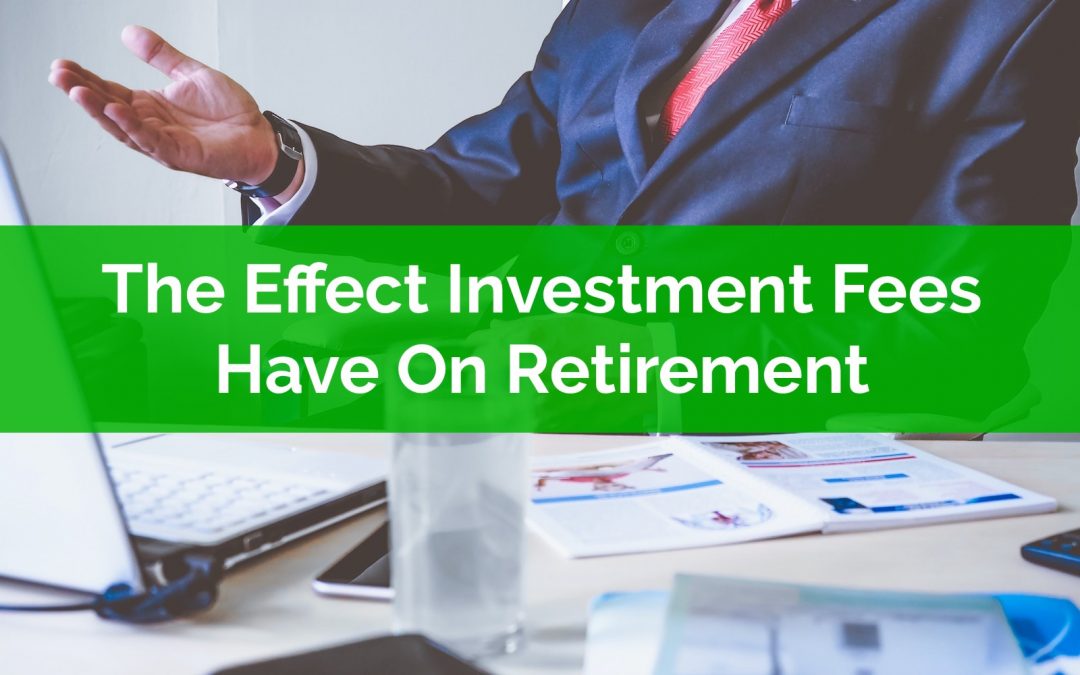
by Owen | Feb 27, 2023 | Investment Planning, Retirement Planning, Saving Money
Everyone is talking about investment fees these days. There are ads on the radio, television, and online… there are podcasts, websites, blogs dedicated to low-fee investing… there are also books, magazines and research studies… all focused on one thing… how much the average investor pays in fees while saving for retirement.
But very few people are talking about the effect investment fees have on retirement itself. Mostly they talk about how fees impact you as you save for retirement, but very few mentions what happens if you continue to pay high fees as you enter retirement.
Fees definitely have an enormous impact on how much you can save for retirement. The average mutual fund fee is 2.35% in Canada, and that’s the average, there are lots of situations where the fee is even higher. The effect of this fee on a lifetime of savings and investments is enormous!
But what if you’re close to retirement? What is the impact then? Arguably the effect of investment fees on retirement planning is even greater than any other period.
Why?
Fees have an enormous effect on retirement planning because by the time we’ve reached retirement we’ve already saved up a huge nest egg. Unlike the accumulation phase, where you have limited assets in the beginning, when it comes to retirement, you’re starting with a huge amount of investment assets. This makes the impact of fees enormous, especially in early retirement.
The problem for retirees is that investment fees are hard to spot, hard to find, they’re almost hidden by investment providers, whether that is intentional or not. I’ve seen this on countless investment statements I receive from clients. Based on the statement alone you would NEVER know how much they’re paying in investment fees each year.
This isn’t an isolated issue, it’s a problem that many, many retirees face. Low-fee investing is a relatively new option in Canada. If you were investing 10-20+ years ago there just weren’t as many options to reduce your investment fees.
Many retirees who have high-priced investments are shocked (and somewhat saddened) to learn exactly how much they’re paying each year. It’s not their fault, this information is hard to find and not readily available to investors.
To figure out how much an investor is paying each year usually requires some digging. Mutual fund codes vary by fund and fund class. Sometimes fees can vary by 1% or more for the same mutual fund depending on the class.
But once you know how much you’re truly paying you can start to see the impact it will have on your retirement plans. There are two main effects that high fees can have on retirement, and the impact can be substantial.
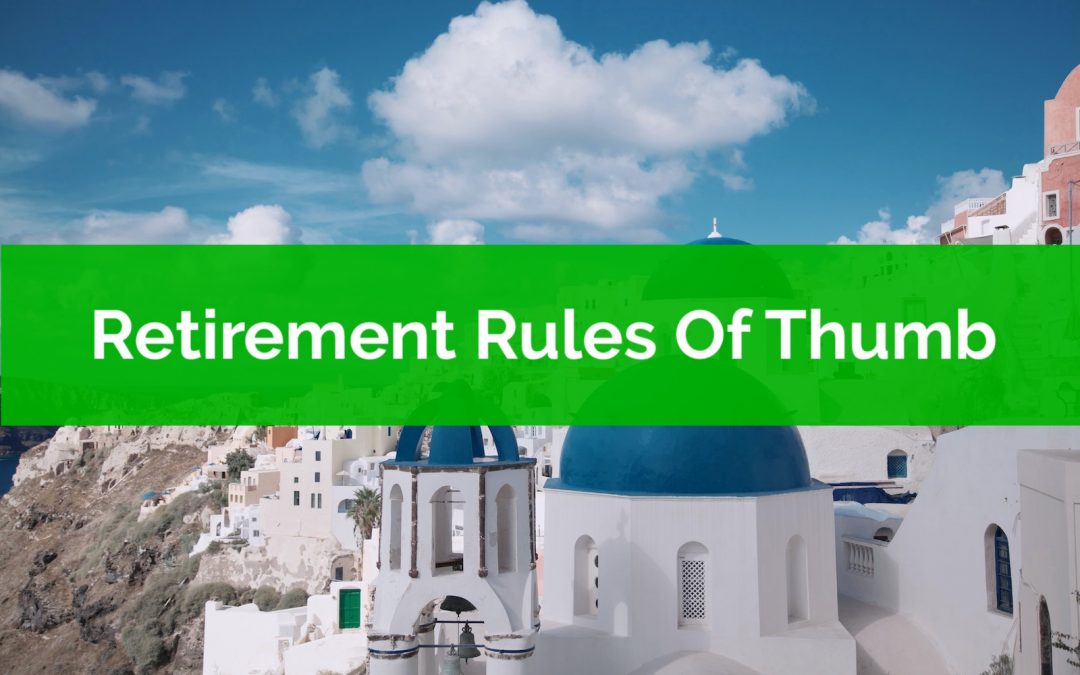
by Owen | Feb 21, 2023 | Financial Planning, Investment Planning, Retirement Planning
Rules of thumb can be great tools when quickly evaluating financial goals and objectives. But not all rules of thumb are good, especially when it comes to retirement.
Some retirement rules of thumb are excellent, while others are misleading. Rules of thumb are great when creating rough financial goals, but they can be too general, and in the worst-case scenario they can be misleading and out of date.
In this blog post we’re going to review three retirement rules of thumb and we’re going to give them a “thumb” rating from 1 to 5. One being complete garbage, never use. And five being just amazing, you can plan your life by this rule.
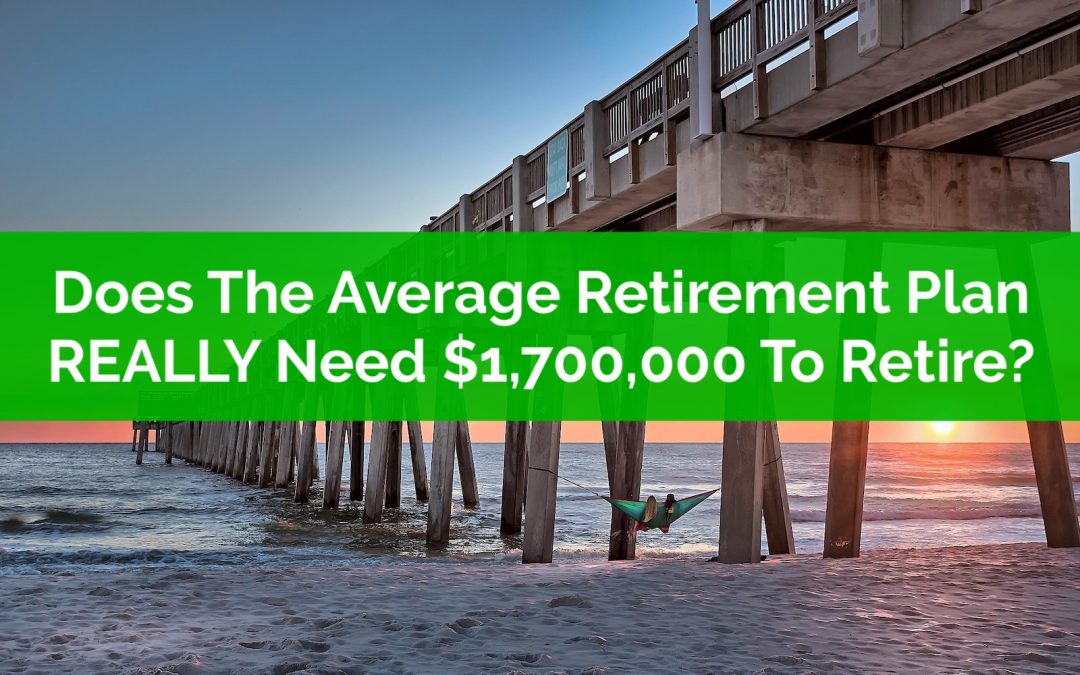
by Owen | Feb 13, 2023 | Budgeting, Financial Goals, Financial Planning, Income, Investment Planning, Retirement Planning, Saving Money, Tax Planning
In this blog post we’re going to look at an average retirement plan with $1,700,000 in financial assets. Why $1,700,000? Because that’s what a recent bank survey suggested that the average Canadian feels they need to retire.
Now, banks are in the business of selling financial products, so they may be somewhat biased when it comes to how much you should be saving for retirement. They’re probably happy for you save and invest more for retirement because it means more investment fees for them. But let’s give them the benefit of the doubt and let’s see if $1,700,000 is really the right retirement goal for the average Canadian household.
Having done many, many, advice-only retirement plans I suspect that this number is grossly overstated, and a much smaller amount is likely sufficient to have a comfortable retirement for the average household.
To test if this is true, we’re going to build an “average retirement plan” with $1,700,000 in financial assets.
Of course, no retirement plan is ever average. Some people have more CPP, some less. Some people have defined benefit pensions, others do not. Some people want to spend more in retirement while others are content with spending less. There is no such thing as an “average retirement plan” but we’re going to make some broad assumptions to test whether or not $1,700,000 is a reasonable goal for retirement assets or if it’s grossly overstated.
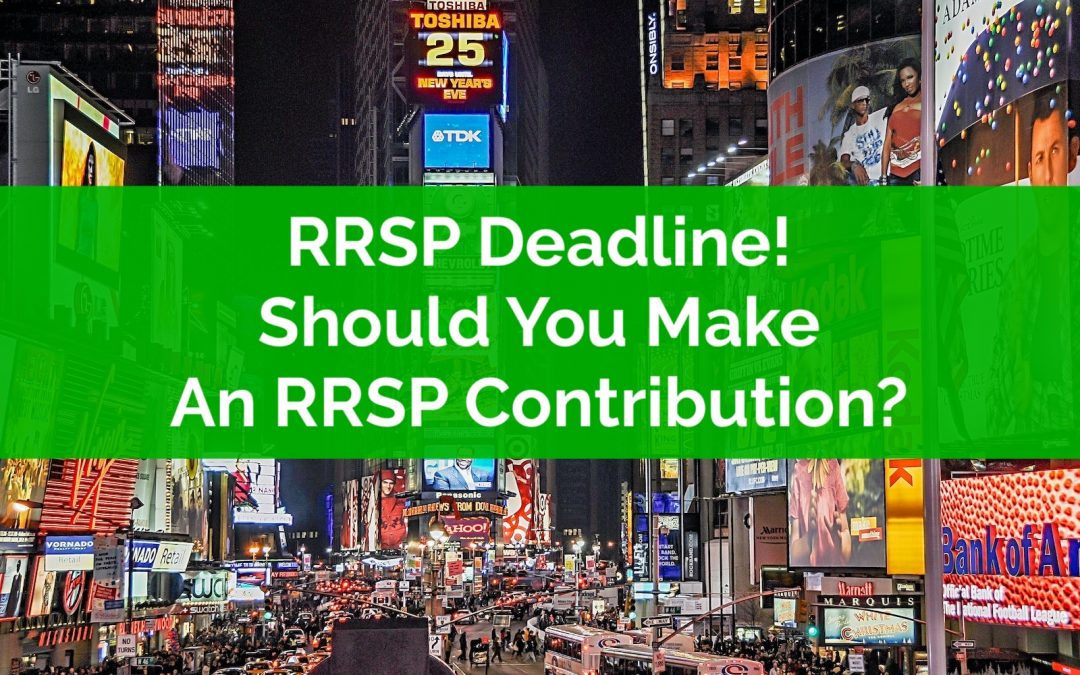
by Owen | Feb 6, 2023 | Financial Planning, Government Programs, Income, Retirement Planning, Tax Planning
The RRSP deadline is quickly approaching on March 1st, and you should get ready for advertisements selling you all sorts of RRSP products over the next few weeks. But despite what the advertisements suggest, should you actually make an RRSP contribution this year? Maybe, but maybe not.
In this blog post we’re going to highlight 5 reasons why you SHOULD NOT make an RRSP contribution this year.
As we build financial plans with clients, we sometimes come across situations where RRSP contributions were made to the detriment of the client. The client was in one or more of the situations below, but they were still advised to make RRSP contributions, or they were advised to split contributions between RRSP and TFSA, or sometimes they were not given any tax planning or government benefit advice at all.
Depending on the situation, this has cost a number of clients $10,000’s in extra income tax or reduced government benefits.
So, as the RRSP deadline approaches, watch out for these five situations where RRSP contributions may not be the best option, and always seek the advice of an unbiased advice-only financial planner to create a thorough income tax and government benefit strategy before making $1,000’s in RRSP contributions.






